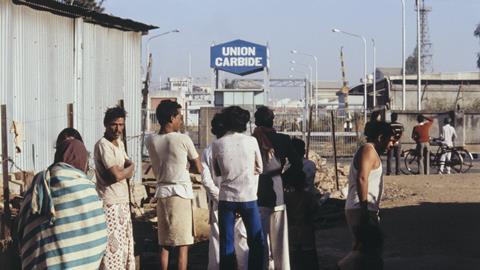Charity or Business? The Betrayal of Bhopal’s Survivors

Forty years ago, a silent night in Bhopal turned into a nightmare, leaving thousands dead and countless lives shattered. The Union Carbide gas leak, one of the world’s worst industrial disasters, stole mothers, fathers, and children, leaving survivors with scars—physical, emotional, and generational—that refuse to heal. Today, the haunting question arises: has this tragedy become less about relief and justice and more about profit and pretense?
Non-governmental organizations (NGOs) stepped forward as beacons of hope in the wake of the disaster, raising their voices for justice and rallying funds to help the victims. But as the years turned into decades, an uncomfortable truth has emerged. Some of these organizations, rather than focusing on the broken families and poisoned lands of Bhopal, seem more preoccupied with their own survival.
Take, for instance, the staggering sums raised in the name of Bhopal’s tragedy. One prominent NGO collected £985,000 (approximately ₹10.1 crore) in a single year. Imagine the homes that could have been rebuilt, the medical care that could have been provided, or the futures that could have been restored with that money. But for too many survivors, those dreams remain just that—dreams. Instead, these funds often disappear into administrative costs, glossy international campaigns, and endless legal battles, leaving the victims to continue their lonely fight for justice.
Even more troubling is the clear vested interest some organizations seem to have in keeping the crisis alive. They claim to fight for justice and accountability, yet their actions suggest they are actively opposing efforts to improve the situation on the ground or follow court directions. Their reluctance to support meaningful progress raises serious concerns.
Is it because, if the site is cleaned and the issue resolved, they can no longer collect funds from foreign countries in the name of the Bhopal disaster?
Critics argue that unresolved problems are profitable. The longer the crisis drags on, the more funds these organizations can raise. The victims’ suffering becomes a perpetual backdrop for fundraising campaigns, while their actual needs are relegated to the sidelines.
The real question one should ask is—how much longer will they shamelessly profiteer from perpetuating and selling an image of a dirty, unsafe India to the world? It is evident that a renewed, vibrant, and developing image of India is not consistent with their agenda or interests. But how much longer will they keep collecting crores of rupees every year by peddling horrific photos of the disaster and its suffering? Will this be the enduring legacy of the Bhopal disaster—an industry of exploitation and corruption built around it?
The reality for Bhopal’s survivors is nothing short of heartbreaking. Children born with twisted limbs and frail bodies, elders battling chronic pain and debilitating diseases, and entire families trapped in a cycle of poverty and despair. Their water is still contaminated. Their air is still poisoned. And their pleas are still unanswered.
Where is the justice for the mothers who lost their babies, for the fathers who could not save their families, and for the children who never had a chance to dream? How can the world continue to turn a blind eye while their tragedy is exploited, their pain transformed into a business model?
The survivors of Bhopal deserve more than empty promises and heartless profiteering. They deserve to be seen, heard, and healed. They deserve justice, not campaigns. They deserve action, not excuses.
The time for complacency is over. Donors and supporters around the world must demand answers. Where is the money going? Why are the victims still suffering? Why are their cries for help drowned out by the noise of international conferences and glossy fundraising materials?
It is time to hold these organizations accountable. Independent audits, strict oversight, and unwavering transparency must become the norm. Every rupee, every dollar, every pound raised in the name of Bhopal should go toward mending broken lives, not maintaining an organization’s image.
To the world, Bhopal is a reminder of human failure. But to the survivors, it is a daily battle to live, to breathe, to hope. Let us not add betrayal to their list of burdens. Let us ensure their pain is not exploited but alleviated.
The people of Bhopal have waited for forty years. Let us not make them wait any longer. They deserve not just justice but humanity. It is time we give them both.
Read More From Techbullion





